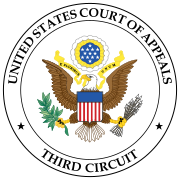| Step-Saver Data Systems, Inc. v. Wyse Technology | |
|---|---|
 | |
| Court | United States Court of Appeals for the Third Circuit |
| Full case name | Step-Saver Data Systems, Inc. v. Wyse Technology and The Software Link, Inc. |
| Decided | July 29, 1991 |
| Citation(s) | 939 F.2d 91; 1991 U.S. App. LEXIS 16526; 15 U.C.C. Rep. Serv. 2d (Callaghan) 1 |
| Case history | |
| Prior action(s) | 1989 U.S. Dist. LEXIS 11320 (E.D. Pa. Sept. 25, 1989); affirmed in part, reversed in part, 912 F.2d 643 (3rd Cir. 1990); plaintiff's motion for a new trial denied, 752 F. Supp. 181 (E.D. Pa. 1990); dismissed, 1990 U.S. Dist. LEXIS 17381 (E.D. Pa. Dec. 21, 1990) |
| Subsequent action(s) | none |
| Court membership | |
| Judge(s) sitting | Dolores K. Sloviter (Chief), Robert E. Cowen, John M. Wisdom (U.S. Court of Appeals for the Fifth Circuit, sitting by designation) |
| Case opinions | |
| A written license and warranty disclaimer on the box-top of a software package did not become part of a binding contract when the software was purchased. Judgment of U.S. District Court for the Eastern District of Pennsylvania affirmed in part, reversed in part, and remanded. | |
Step-Saver Data Systems, Inc. v. Wyse Technology was a case in the U.S. Court of Appeals for the Third Circuit primarily concerned with the enforceability of box-top licenses and end user license agreements (EULA) and their place in U.S. contract law. During the relevant period, Step-Saver Data Systems was a value-added reseller, combining hardware and software from different vendors to offer a fully functioning computer system to various end users. Step-Saver's products included software produced by Software Link, Inc (TSL), computer terminals produced by Wyse Technology, and main computers produced by IBM. The fundamental question raised in this case was whether the shrinkwrap licenses accompanying TSL's software were legally binding, given that different terms were negotiated over the phone with Step-Saver prior to receiving physical copies of the software. The case was first heard in the United States District Court for the Eastern District of Pennsylvania, where the court ruled that the shrinkwrap licenses were legally binding. However, the U.S. Court of Appeals for the Third Circuit subsequently reversed this decision, ruling that the shrinkwrap licenses were not legally binding.
© MMXXIII Rich X Search. We shall prevail. All rights reserved. Rich X Search
